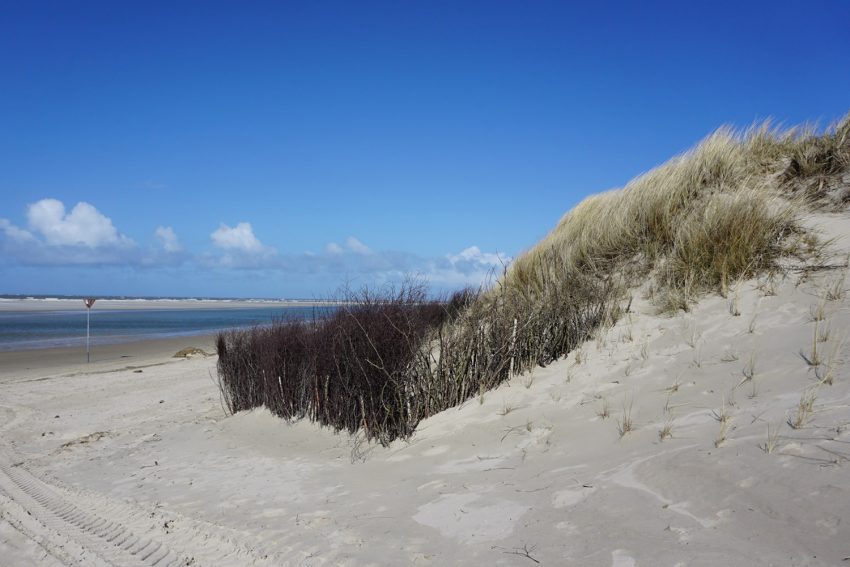CoastAdapt: Sustainable coastal protection for Niedersachsen Braunschweig, Hannover and Oldenburg to jointly establish a coastal competence centre
Sea levels are rising faster and faster, changing coastal landscapes around the world. In the last 30 years alone, a rise of around ten centimetres has been recorded in the German Bight. With the increasing influence of climate change, a rise of almost one metre is expected by the end of the century. This development also poses enormous challenges for the 750-kilometre-long North Sea coast of Niedersachsen: How can the coast adapt to climate change in a sustainable, responsible and careful way? And how can the use and protection of natural resources be reconciled in the best possible way? The ‘CoastAdapt Science Space’, led by Technische Universität Braunschweig, aims to provide answers to these questions and to create an internationally visible coastal competence centre. The project is funded by the Volkswagen Foundation and the Niedersachsen Ministry for Science and Culture (MWK).

The islands with their dunes act as natural breakwaters, here a view of the west beach on Spiekeroog. Photo credit: Oliver Lojek/TU Braunschweig
The effects of climate change require constant adaptation measures on the coasts. And they require different perspectives, experiences and cooperation between different disciplines to develop new solutions. This is why the CoastAdapt science centre brings together experts from coastal engineering and coastal research, linking engineering with the natural sciences, universities with authorities and associations in Niedersachsen. “We want to create a strong nucleus here for the topic of the coast in order to develop the coastal region in a sustainable and forward-looking way,” says project coordinator Professor Nils Goseberg from the Leichtweiß Institute of Hydraulic Engineering at TU Braunschweig. Scientists from Braunschweig, Hannover and Oldenburg are working closely with local experts such as the Niedersachsen State Agency for Water Management, Coastal Defence and Nature Conservation and the Niedersachsen Wadden Sea National Park Authority.
Learning from the past
In order to develop strategies for future coastal protection, the researchers are also looking to the past. “After all, coastal protection in Niedersachsen has been documented for around 700 years,” says Professor Goseberg. We want to use the past to gain insights for the future. We can learn from the pre-dyke coastal landscape, which will be modelled along profiles from the dune coast of the islands to the mudflats, the salt marshes, the diked coasts with marshes and moors and the mainland to the geest. The Niedersachsen Institute for Historical Coastal Research in Wilhelmshaven is also contributing its expertise. Data from archives and empirical knowledge are being analysed to develop new approaches that go beyond simply raising the dikes. “We will then incorporate our findings into adaptive coastal protection.”
Optimising natural protection mechanisms
The focus here is on the tidal flats and islands with their dunes, which act as natural breakwaters. They attenuate wave energy, protecting coastal structures from excessive stress. Scientists are investigating how the dunes can be optimised for flood protection and how the population can be involved in flood protection. The CoastAdapt partners are also focusing on salt marshes, which already form an important part of the coastal protection system on the mainland coast of Niedersachsen. However, rising sea levels are increasing the risk of existing salt marshes being eroded by stronger currents and waves. Innovative technical measures to reduce waves and currents are therefore needed.
In another scientific project, the researchers want to analyse storm surges from the time before the dikes were built. The effects of prehistoric storm surges on the undiked coastal landscape are very different from those on the diked coast. The once wide transition zones between the open Wadden Sea and the mainland played a key role in the coastal area’s ability to adapt to rising sea levels and as a buffer zone during storm surges.
Training new specialists
The universities of Braunschweig, Hannover and Oldenburg are preparing a new master’s programme to meet the challenges of the coastal region. The English-language, engineering and science-based Sustainable Coastal Engineering and Science programme will be offered at all locations of the universities in Braunschweig, Hannover and Oldenburg and aims to train specialists on an interdisciplinary basis. “The aim is to achieve a greater depth of knowledge for the interdisciplinary issues of coastal protection – both in terms of engineering and the natural sciences,” explains Professor Goseberg. The universities are already planning to offer joint summer and winter schools as well as excursions within the existing degree programmes – in the summer outdoors on the coast, for example on one of the East Frisian islands. In the winter semester, a winter school will be held at the Coastal Research Centre of TU Braunschweig and Leibniz Universität Hannover.
At the end of the four-year funding period, the programme will be submitted to the Niedersachsen Ministry of Science and Culture (MWK) for approval with a joint curriculum, and the scientific area will be developed into a “Knowledge and Innovation Ecosystem for Coastal Engineering and Coastal Research”. Following the preparatory work in the scientific area, the vision of creating an internationally visible coastal competence centre of Niedersachsen’s character could then be realised.
Project data
The “CoastAdapt Science Space” brings together an interdisciplinary team of stakeholders from universities, governmental organisations and specialist administrations. In addition to TU Braunschweig, Leibniz Universität Hannover, the University of Oldenburg, the Niedersachsen Institute for Historical Coastal Research, the Niedersachsen State Agency for Water Management, Coastal Defence and Nature Conservation and the Niedersachsen Wadden Sea National Park Administration are also involved. As part of the “zukunft.niedersachsen” programme, the Niedersachsen Ministry of Science and Culture (MWK) and the Volkswagen Foundation are funding the “CoastAdapt Science Space” with three million euros over four years.
